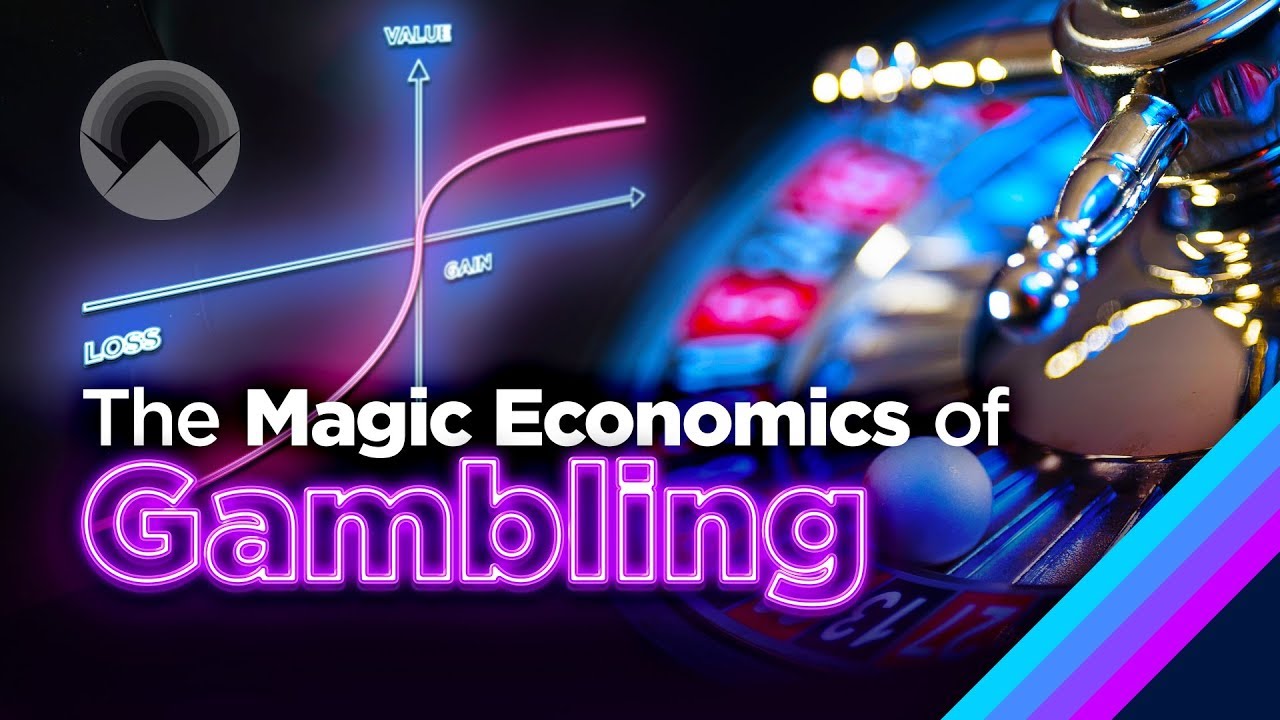What Are The Benefits Of Gambling Responsibly - The Pros And Cons Of Gambling On The Economy
In this article, we will explore what the benefits of gambling responsibly and how it can be an enjoyable and positive experience for everyone involved. Gambling has been a popular form of entertainment for centuries, and it continues to attract millions of people worldwide.
Apr 17, 202332.7K Shares495.8K Views

In this article, we will explore what are the benefits of gambling responsiblyand how it can be an enjoyable and positive experience for everyone involved.
Gambling has been a popular form of entertainment for centuries, and it continues to attract millions of people worldwide. While gambling can be a fun and thrilling experience, it can also be addictive and lead to negative consequences for individuals and their families.
However, when done responsibly, gambling can have several benefits, both for individuals and society as a whole.
What Is Responsible Gambling?
Responsible gambling is the act of gambling in a way that minimizes the potential negative impacts of the activity.
It involves setting limits on the amount of money and time spent gambling, understanding the odds of winning and losing, and being aware of the signs of problem gambling. Responsible gambling also includes seeking help when necessary and avoiding chasing losses.
What Are The Benefits Of Gambling Responsibly?
Here are some benefits of responsible gambling.
Entertainment And Socialization
Gambling can be a fun and entertaining activity, especially when done in a social setting with friends or family.
Responsible gambling allows individuals to enjoy the experience without risking their financial stability or causing harm to themselves or others. It can also help individuals to connect with others who share their interests and form new friendships.
Economic Benefits
Gambling can also have positive economic effects on society. It can create jobs, increase tax revenue, and contribute to local economies. In some cases, casinos and other gambling establishments can also provide funding for community projects and initiatives.
Mental Stimulation
Playing games of chance can provide mental stimulation and challenge the brain in a unique way.
It can require strategic thinking, problem-solving, and decision-making skills, all of which are essential for cognitive development. Responsible gambling can also help individuals to improve their math skills and increase their knowledge of probability.
Emotional Regulation
Gambling can also help individuals to regulate their emotions and cope with stress. When done responsibly, it can be a healthy outlet for individuals to unwind and relax.
It can also provide a sense of excitement and thrill that can help individuals to feel more alive and engaged with the world around them.
Philanthropy
In some cases, gambling can also be a way for individuals to give back to society. Many casinos and other gambling establishments have charitable programs and donate a portion of their profits to various causes.
By participating in responsible gambling, individuals can support these initiatives and help to make a positive impact on their communities.
How Can Individuals Gamble Responsibly?
Here is a complete guide to gambling responsibly.
Set Limits
The first step in responsible gambling is to set limits on the amount of money and time spent gambling. This can include setting a budget for each gambling session, limiting the amount of time spent gambling, and avoiding borrowing money to gamble.
Understand The Odds
It is essential to understand the odds of winning and losing before placing any bets. This can help individuals to make informed decisions about their gambling and avoid chasing losses.
Recognize The Signs Of Problem Gambling
It is crucial to be aware of the signs of problem gambling and seek help if necessary. These signs can include spending more money than intended, lying about gambling habits, and experiencing negative consequences as a result of gambling.
Seek Help
If individuals find themselves struggling with problem gambling, it is essential to seek help. This can include talking to a therapist, joining a support group, or seeking professional treatment.
Benefits Of Gambling For The Economy
Gambling can have several economic benefits for society. When gambling is legalized and regulated, it can create jobs, generate tax revenue, and contribute to the local economy. Below are some of the ways gambling can be beneficial for the economy:
Job Creation
Gambling establishments, such as casinos, require a significant amount of manpower to operate. They need staff for security, cleaning, food and beverage services, and entertainment.
In addition, they require dealers, pit bosses, and other gaming personnel to manage the games. All of these jobs can provide employment opportunities for local residents and contribute to the overall economy.
Tax Revenue
When gambling is legalized, the government can impose taxes on the industry. The tax revenue generated from gambling can be significant, especially in areas where there is a high demand for gambling.
The tax revenue can be used to fund various government programs and services, such as education, healthcare, and infrastructure development.
Tourism
Gambling establishments can attract tourists from both domestic and international locations. Tourists who come to gamble also spend money on other activities, such as dining out, shopping, and entertainment.
This can contribute to the local economy and create jobs in related industries.
Construction
Building and operating a gambling establishment can also stimulate the construction industry. The construction of a casino or other gambling venue can create jobs in the building trades, such as carpenters, electricians, and plumbers.
It can also generate revenue for local businesses that supply construction materials and equipment.

The Magic Economics of Gambling
Charitable Donations
Many gambling establishments have charitable programs that donate a portion of their profits to various causes. These donations can be significant and can help fund important community initiatives and projects.
This can be especially beneficial for communities that are struggling financially or have limited resources.
However, it is important to note that the economic benefits of gambling may not always outweigh the potential negative consequences, such as problem gambling, addiction, and other social issues.
It is essential to have effective regulation and responsible gambling measures in place to mitigate the negative impacts of gambling and ensure that the economic benefits are realized in a sustainable and responsible manner.
People Also Ask
How Does Gambling Affect The Local Economy?
Gambling can have positive economic impacts such as creating jobs, generating tax revenue, and stimulating tourism and construction industries.
What Is Problem Gambling?
Problem gambling is when an individual's gambling behavior begins to have negative consequences on their personal and professional life, and they may continue to gamble despite these negative consequences.
How Can Governments Regulate Gambling?
Governments can regulate gambling through licensing and permitting, setting age limits, imposing taxes and fees, enforcing anti-money laundering laws, and implementing responsible gambling measures.
What Are The Most Common Types Of Gambling?
The most common types of gambling include casino games such as slots and table games, sports betting, lottery games, and online gambling.
How Can Individuals Practice Responsible Gambling?
Individuals can practice responsible gambling by setting limits on time and money spent gambling, avoiding chasing losses, being aware of the signs of problem gambling, and seeking help when needed.
Conclusion
The aim of this article is to explain What are the benefits of gambling responsibly. Gambling can have several benefits when done responsibly.
It can provide entertainment and socialization, create jobs and contribute to local economies, and provide mental stimulation and emotional regulation.
Responsible gambling involves setting limits, understanding the odds, recognizing the signs of problem gambling, and seeking help when necessary.
By practicing responsible gambling, individuals can enjoy the benefits of the activity while minimizing the potential negative impacts on themselves and society as a whole.
Latest Articles
Popular Articles
